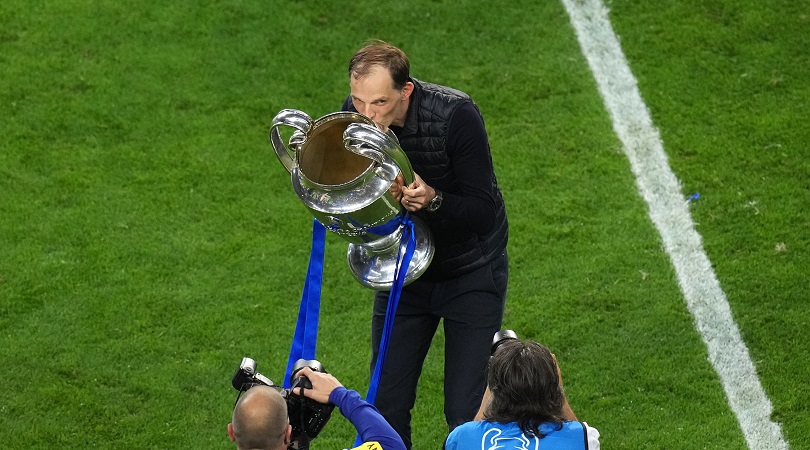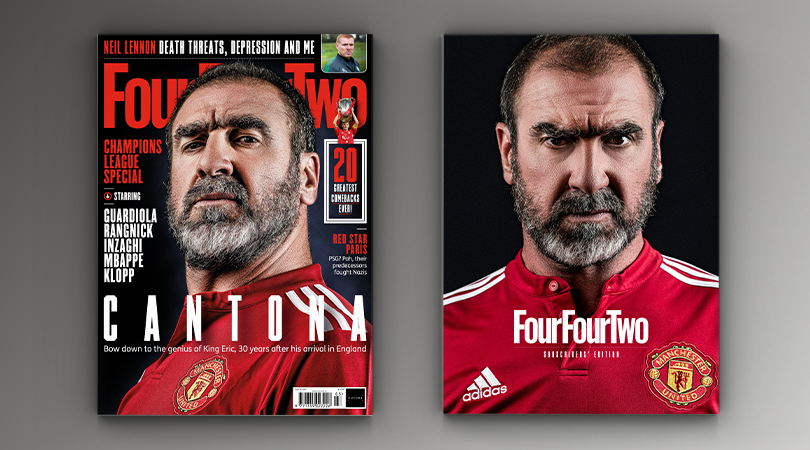How Chelsea became Champions League specialists under Thomas Tuchel
Chelsea are way off the pace in the Premier League this season, but have become masters of tense European cup ties

Thomas Tuchel had just achieved world domination when he accepted he would not conquer England. Not this season, anyway. It was a rational explanation as he looked at the Premier League table. “Sixteen points is too much,” he said on Friday and if the gap to Manchester City is reduced to 13 now, it still feels gargantuan.
If Tuchel is a realist, he also excelled at the improbable, taking over a mid-table team and then winning the Champions League. Twelve months on, some of the context has changed – Chelsea feel a shoo-in for a top-four finish, while Tuchel has had an entire campaign at the helm – but some stays the same: Chelsea are likelier to win the Champions League than the Premier League.

But they also seem better suited to it. They have not sustained a title challenge since Antonio Conte won the division in 2017 and if that partly reflects the standards Manchester City and Liverpool have set in seasons when the winner has tended to top 90 points, Chelsea have not mustered more than 72 since then. They are on course for 76 now. Perhaps the maths have changed in another respect. City and Liverpool have 14 and 15 more goals respectively. In every other attacking metric – expected goals, shots, shots on target – Chelsea trail far behind them. If that reflects the underachievement of some of their expensive attackers, while many another deemed them City’s likeliest challenger, Tuchel always deemed them fourth favourites this season. Perhaps he was downplaying expectations but he may be justified. If his complaints about injuries, Covid and a crowded fixture list in December and January felt excessive, Chelsea have not sustained form over 38 games in the last five seasons. Over 90 or 180 minutes, however, they can verge on the unbeatable. They have benefited from big personalities who can feel inspired on such occasions.
Since Conte’s 2017 Premier League, Chelsea have won the Europa League, the FA Cup, the Champions League, the European Super Cup and the Club World Cup since then; with a Carabao Cup final, they could complete the set as a cup team. And they have become a formidable proposition in knockout ties.
In part, it stems from the squad depth to brush aside inferior opponents in the earlier stages of competitions. Tuchel finessed that initial advantage with what felt a throwback formula. The adage that defence wins championships, borrowed from American football, had felt outdated in the era of Lionel Messi and Cristiano Ronaldo. Tuchel’s Chelsea prevailed by only conceding two goals, one of them so late to be irrelevant, in seven knockout games. There was a mid-2000s feel: even when the purist Arsene Wenger reached the 2006 final, it was with 10 consecutive clean sheets. Tuchel rationed drama: Chelsea’s largely uneventful progress felt the antidote to the ludicrously eventful 2019 semi-finals.
Tuchel’s emphasis on control may make Chelsea less prone to a game where everything goes wrong: his defensive line is less high than Liverpool’s or Bayern Munich’s while City, as Saturday showed, can veer from winning runs to one-off setbacks. Certainly there is a case for arguing that the outstanding defensive formation now involves three centre-backs, shielded by two central midfielders behind the ball, who can be bolstered by a third. In N’Golo Kante, Chelsea had the dominant figure of last season’s knockout stages; fitness permitting, he could assume the same role.
Perhaps, though, Tuchel’s Chelsea came along at the right time. Unstoppable attacking outfits were no longer unstoppable, with Barcelona imploding and Real Madrid in slower decline. They only faced one brilliant attacking side last season and Pep Guardiola’s tactics backfired in the final. Chelsea still require Tuchel to display the golden touch in selection, perming the right options from a large squad, that he usually demonstrated last season, but it feels a plausible formula.
Get FourFourTwo Newsletter
The best features, fun and footballing quizzes, straight to your inbox every week.
Over a Premier League campaign, Chelsea – and Romelu Lukaku and Kai Havertz in particular – should have been more potent. In one-off games, it is more about quality than quantity. Lukaku and Havertz both scored in the Club World Cup final. Mason Mount was their only player to strike more than once in last season’s Champions League knockout stages, but others chipped in: Olivier Giroud, Hakim Ziyech and Emerson Palmieri against Atletico Madrid, Ben Chilwell in Porto, Christian Pulisic and Timo Werner versus Real Madrid, before Havertz in the final. They don’t share goals around as prolifically as City do, but it is a method that can work in low-scoring encounters.
Chelsea showed the merits of a big-game mentality and defensive solidity, of tactical excellence and attention to detail. They may have another advantage this year, granted one of the easiest last-16 ties, perhaps able to progress while either Real or Paris Saint-Germain and one of Atletico and Manchester United are knocked out. But the team who eliminated Zinedine Zidane’s Real last season may be the successors to his greatest side, more likely to win in Europe than in their domestic league.
Subscribe to FourFourTwo today and save over a third on shop price
Restock your kit bag with the best deals for footballers on Amazon right now
ALSO READ
LIST Football Manager 2022: All the FM22 wonderkids you'll need to sign
Richard Jolly also writes for the National, the Guardian, the Observer, the Straits Times, the Independent, Sporting Life, Football 365 and the Blizzard. He has written for the FourFourTwo website since 2018 and for the magazine in the 1990s and the 2020s, but not in between. He has covered 1500+ games and remembers a disturbing number of the 0-0 draws.

